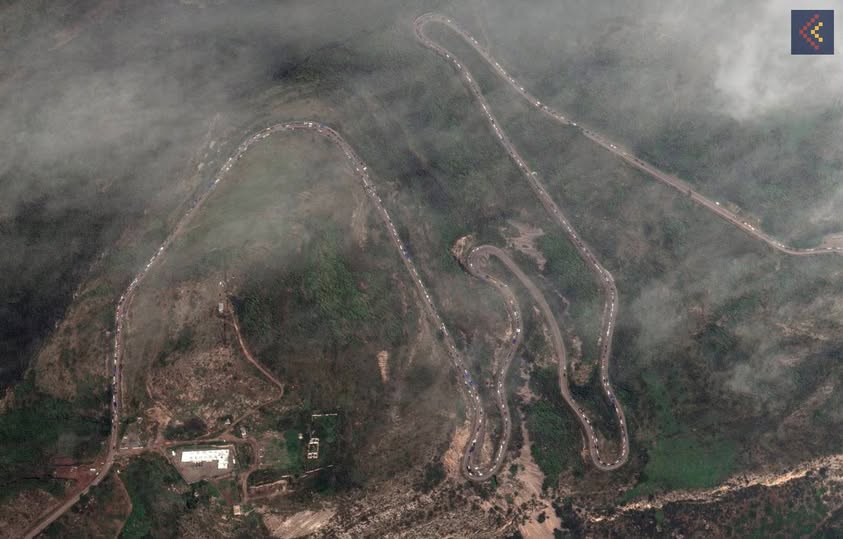On September 19, 2023, a vicious war broke out along the entire border of Nagorno-Karabakh, accompanied by violations of the fundamental principles of The Hague and Geneva Conventions, war crimes, killings among the civilians, abductions, ethnic cleansing, and genocidal actions, which led to the forced displacement of the tens of thousands of Armenians of Artsakh from their historical homeland.
The reasons of the forced displacement are deep and multifaceted—linked to the 44-day war of 2020, the targeting of civilian settlements, as well as the ten-month blockade of the Lachin Corridor, the endurance of prolonged starvation, the absence of minimum living conditions, fear, despair, mass violations of human rights, and Azerbaijan’s state-driven and deliberate policy of discrimination.
The forced displacement of Artsakh Armenians took place in 3 stages. The first major wave of displacement began during the 44-day war of 2020 and the months that followed, when the population of around 113 out of 228 communities of Artsakh was displaced. People lost their homes, and no opportunities were created for continuing the existence and development of communities within fear and danger.
As a result of Azerbaijan’s war crimes, as well as the socio-economic and humanitarian crisis caused by the war, more than 35,000 people were forcibly displaced from the regions of Shushi, Hadrut, Shahumyan, Qashatagh, and several villages of the Martakert and Askeran regions.
Read also
In December 2022, the 10-month blockade of the Berdzor (Lachin) Corridor began, as a result of which the Armenians of Artsakh were left for months facing hunger, absence of medicine and medical assistance, and interruption of vital supplies (food, fuel, hygiene products). The blockade was also accompanied by deliberate interruptions of gas, electricity, and water supplies, which seriously undermined the minimum living conditions of the population.
The second major wave of displacement followed the military operations that began on September 19, 2023. On September 24, Azerbaijan’s deliberate state policy reached its logical culmination when the Lachin Corridor was opened, and within ten days, the people—seeking an escape route—left their ancestral historical lands. In this case, the blockade of the Lachin Corridor, the horrific one-day war that followed with numerous casualties, the killings among the civilian population, the fear of physical extermination and captivity, the despair, and the racial discrimination became the COMMAND for displacement, creating a condition that compelled complete displacement.
During this period, the entire remaining Armenian population of Artsakh—from the regions of Askeran, Martuni, the city of Stepanakert, and the villages of Martakert—100,600 people—was forcibly displaced.
On October 12, 2023, the Parliamentary Assembly of the Council of Europe (PACE) adopted Resolution No. 2517, titled “The Humanitarian Situation in Nagorno-Karabakh”, which strongly condemned Azerbaijan’s actions of September 19, 2023, as well as the crisis caused by the preceding blockade of the Lachin Corridor. The Assembly, in its Article 11 clearly noted that almost the entire Armenian population of the region (100,600) had left its ancestral homeland and fled to Armenia, due to the threat of physical extermination, Azerbaijan’s longstanding Armenophobic policy, and the lack of trust in the Azerbaijani authorities.
As a result of Azerbaijan’s policy of Armenophobia—aimed at cleansing Nagorno-Karabakh’s historical territory of Armenians, distorting its natural and cultural landscape, Islamizing, destroying, and desecrating it—today, more than 150,000 people live under conditions of systemic violations of their rights. The obstruction of the exercise of the right to return and the deprivation of the fundamental rights of the Artsakh Armenians strike at the very existence of international law.
Displacement is an ongoing war, violence and crime against generations.
The Human Rights Union of Nagorno-Karabakh Refugees calls upon the international community to take the necessary measures to ensure the dignified, safe, and voluntary return of the Armenian people of Nagorno-Karabakh to their homeland, guaranteeing the full restoration of their violated rights.
The Human Rights Union of Nagorno-Karabakh Refugees

























































